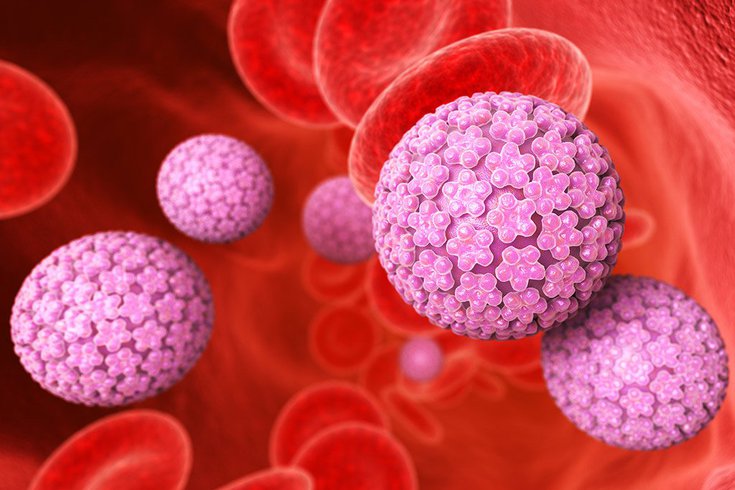
March 01, 2021
 Source/Image licensed from Ingram Image
Source/Image licensed from Ingram Image
The human papillomavirus vaccine must be administered as two doses to provide full immunity. The illustration above shows blood cells and the HPV in a vein.
HPV vaccination rates have lagged despite the known cancer risk associated with the human papillomavirus, a new report shows.
A new report shows HPV vaccination rates have lagged despite the known cancer risk associated with the Human papillomavirus.
Only 55% of commercially-insured adolescents ages 10-13 received their first doses of the HPV vaccine during a recent three-year period, according to a Blue Cross Blue Shield report. Only 29% came back for their second doses.
The percentages were slightly better in the Philadelphia. Nearly 57% received the first dose and 31% received the second.
Last year, there was a 13.5% drop nationwide in the number of HPV vaccines administered through October. That mirrored declines in other childhood vaccines — drops that have been attributed to the coronavirus pandemic.
An earlier BCBS report found children were on track to meet 9 million vaccinations last year, a drop off attributed to the coronavirus pandemic. Some vaccinations rates were down as much as 26%.
Of the parents whose children did not get the HPV vaccine, 29% cited uncertainty about its effectiveness and 22% cited concerns about side effects. Also, 25% said they did not vaccinate their child because it was not required.
Yet, many adults lack awareness of the dangers of HPV. A 2019 study highlighted the need for better education on HPV.
HPV is a common sexually transmitted infection that has been linked to an increased risk for cervical, vaginal, vulvar, penile, anal and throat cancers.
The virus is responsible for 70 to 90% of these cancers in the United States, according to the U.S. Centers for Disease Control and Prevention. Cervical cancer is the fourth-most common cancer among women worldwide.
The HPV vaccine must be administered as two doses to provide full immunity. The CDC recommends that children receive their two doses between 9 and 14. Anyone who receives the first dose after their 15th birthday should receive three doses.